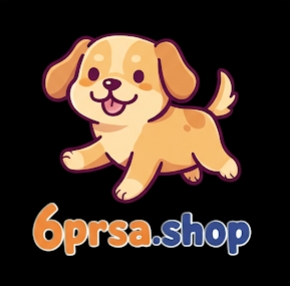Choosing the right dog food can feel overwhelming, especially with so many brands and formulas available. This article cuts through the marketing noise to give you a balanced look at Aldi dog food reviews, helping you decide if it’s the right fit for your furry friend. We’ll explore the pros and cons, analyze ingredients, and share insights based on real-world experiences to guide your decision-making process.
Aldi’s dog food options, often marketed under brands like “Heart to Tail,” are budget-friendly, making them attractive to pet owners looking to save money. However, the low price often raises questions about quality. Online reviews are mixed. Some pet owners report their dogs thriving on Aldi’s dog food, citing healthy coats, good energy levels, and solid stools. Others express concerns about the ingredient list and potential sensitivities. The common theme in Aldi dog food reviews is the acknowledgment of the price point versus the perceived quality trade-off.
A Deep Dive into Ingredients
A critical aspect of any dog food review is the ingredient list. Examining the ingredient list of Aldi’s Heart to Tail brand reveals some important details. The ingredients typically include corn, soy, and wheat, which are often used as fillers and can be problematic for dogs with sensitivities. However, Aldi also offers grain-free options now, which are worth consideration if your dog requires a grain-free diet. The protein source is often listed as “meat by-products,” which can be less digestible and less nutritious than named meat sources like chicken or beef.
Comparing Aldi Dog Food to Other Brands
When comparing Aldi dog food to premium brands, the differences become more apparent. Premium brands typically prioritize high-quality protein sources, whole grains (if not grain-free), and added vitamins and minerals. While Aldi’s price point is lower, you might be sacrificing ingredient quality and potential long-term health benefits for your dog. Consider brands like Purina Pro Plan, Royal Canin, or Hill’s Science Diet if budget allows, as they often undergo extensive research and quality control.
Having fostered numerous dogs with varying dietary needs, I’ve experimented with a wide range of dog food brands, including Aldi’s Heart to Tail. My experience highlights the importance of individual dog needs. One foster dog, a Labrador mix, thrived on Heart to Tail, exhibiting no adverse reactions and maintaining a healthy weight. However, another foster, a sensitive-stomached terrier, experienced digestive upset and skin irritation. This experience underscores the critical point that what works for one dog may not work for another, regardless of price or brand.
The “Hidden Cost” of Cheaper Dog Food
The low price tag of Aldi dog food can be tempting, but it’s crucial to consider the potential “hidden costs.” Lower-quality ingredients might lead to digestive issues, allergies, or skin problems, resulting in more frequent vet visits and ultimately negating the initial savings. Furthermore, if your dog isn’t getting adequate nutrition from their food, you might need to supplement their diet with additional vitamins and minerals, adding to the overall expense. It’s a balancing act between affordability and ensuring your dog’s long-term well-being.
Beyond the Bag: Observation is Key
Regardless of the dog food you choose, careful observation is paramount. Monitor your dog’s energy levels, coat condition, stool consistency, and overall health. Any sudden changes or concerns should prompt a consultation with your veterinarian. I’ve learned to be proactive and keep a detailed log of my dog’s diet and any observed symptoms, which helps my vet make informed decisions.
Ultimately, deciding whether to feed your dog Aldi dog food is a personal choice based on your dog’s individual needs, your budget, and your comfort level with the ingredients.
Considering Your Dog’s Specific Needs
Factors to consider include your dog’s age, breed, activity level, and any existing health conditions. Puppies and senior dogs have different nutritional requirements than adult dogs. Certain breeds are also predisposed to specific health issues that may be exacerbated by lower-quality ingredients. For example, large breed puppies require controlled calcium and phosphorus levels to prevent developmental problems.
Alternatives and Supplementation
If you’re considering Aldi dog food due to budget constraints, explore other affordable options or consider supplementing your dog’s diet. Look for brands that prioritize named meat sources and limit fillers. Adding a small amount of cooked chicken or fish to your dog’s food can boost the protein content and improve palatability. However, always consult with your vet before making significant dietary changes.
Table: Comparing Aldi Dog Food with other Brands
| Feature | Aldi Heart to Tail | Purina Pro Plan | Hill’s Science Diet |
|---|---|---|---|
| Price | Low | Moderate | High |
| Protein Source | Meat By-Products | Named Meat (e.g., Chicken) | Named Meat (e.g., Chicken) |
| Grain Content | Often High | Varies (Grain-Free Options) | Varies (Grain-Free Options) |
| Filler Content | High | Lower | Lower |
| Vet Recommendation | Less Frequent | More Frequent | More Frequent |
Consider the table above, which demonstrates the main comparison between three brands
Aldi dog food can be a viable option for some pet owners, particularly those on a tight budget. However, it’s crucial to carefully consider the ingredients, your dog’s individual needs, and the potential long-term health implications. Prioritize your dog’s health and wellbeing when determining the best food. The key is informed decision-making and diligent observation. Don’t hesitate to consult with your veterinarian for personalized recommendations.
Here are some frequently asked questions regarding reviews on Aldi dog food:
Our goal is to change how pet foods are made and marketed … and that starts with education. Our Advisory Board includes a PhD veterinarian who taught nutrition to vet students, a PhD food scientist and formulator, a PhD veterinarian and herbalist, and a veterinarian who’s a nutrition expert and advisor to AAFCO, the organization that sets standards for pet food production. We’ve brought the best and brightest minds together to help investigate the foods you feed your furry family member.

